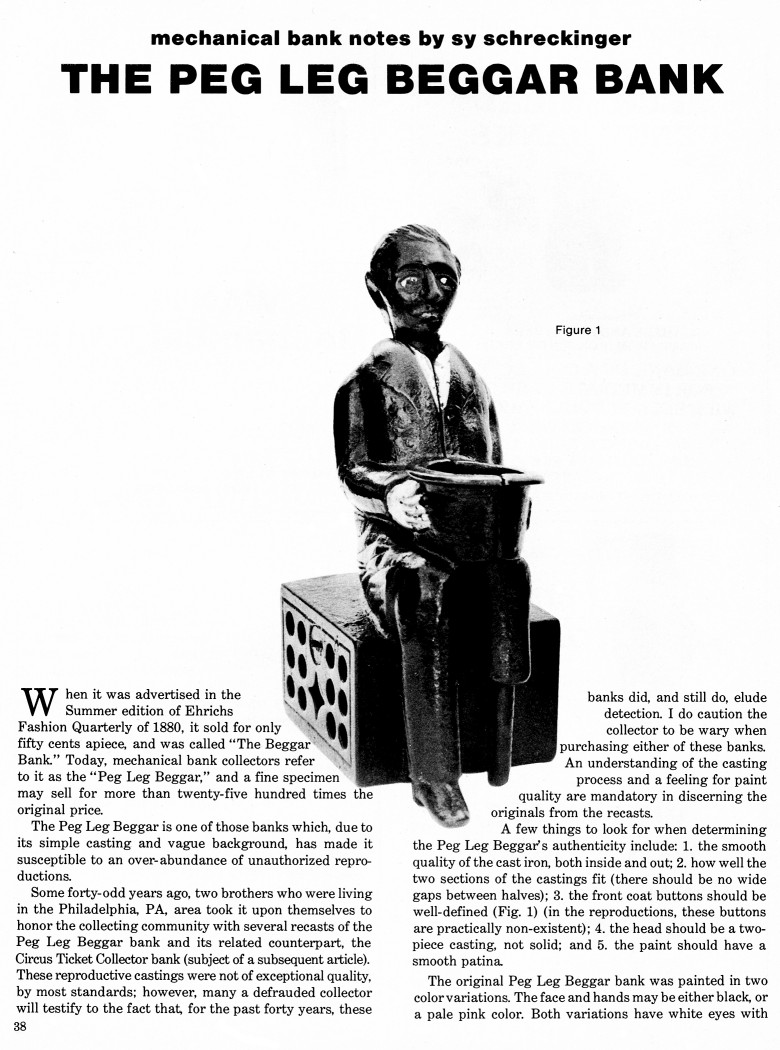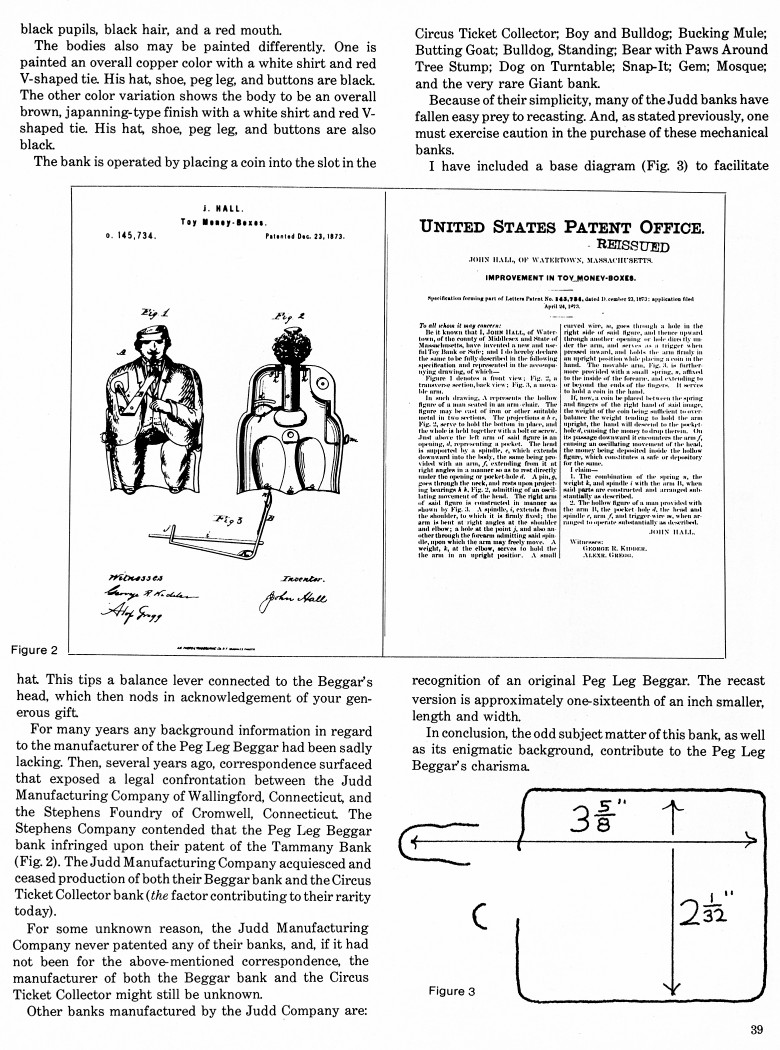|
The Peg Leg Beggar Bank
by Sy Schreckinger – ANTIQUE TOY WORLD Magazine – June, 1983
When it
was advertised in the Summer edition of Ehrichs Fashion Quarterly of 1880,
it sold for only fifty cents apiece, and was called "The Beggar Bank."
Today, mechanical bank collectors refer to it as the "Peg Leg Beggar," and
a fine specimen may sell for more than twenty-five hundred times the
original price.
The Peg Leg Beggar is one of those banks which, due to its simple
casting and vague background has made it susceptible to an over-abundance
of unauthorized reproductions.
Some forty-odd years ago, two brothers who were living in the
Philadelphia, PA, area took it upon themselves to honor the collecting
community with several recasts of the Peg Leg Beggar bank and its related
counterpart, the Circus Ticket Collector bank (subject of a subsequent
article). These reproductive castings were not of exceptional quality, by
most standards; however, many a defrauded collector will testify to the
fact that, for the past forty years, these banks did, and still do, elude
detection. I do caution the collector to be wary when purchasing either of
these banks. An understanding of the casting process and a feeling for
paint quality are mandatory in discerning the originals from the recasts.
A few things to look for when determining the Peg Leg Beggar's
authenticity include: 1. the smooth quality of the cast iron, both inside
and out; 2. how well the two sections of the castings fit (there should be
no wide gaps between halves); 3. the front coat buttons should be
well-defined (Fig. 1) (in the reproductions, these buttons are practically
non-existent); 4. the head should be a two-piece casting, not solid; and
5. the paint should have a smooth patina.
The original Peg Leg Beggar bank was painted in two color variations.
The face and hands maybe either black or a pale pink color. Both
variations have white eyes with black pupils, black hair, and a red mouth.
The bodies also may be painted differently. One is painted an overall
copper color with a white shirt and red V-shaped tie. His hat, shoe, peg
leg, and buttons are black. The other color variation shows the body to be
an overall brown, japanning-type finish with a white shirt and red
V-shaped tie. His hat shoe, peg leg, and buttons are also black.
The bank is operated by placing a coin into the slot in the hat. This
tips a balance lever connected to the Beggar's head, which then nods in
acknowledgement of your generous gift.
For many years any background information in regard to the
manufacturer of the Peg Leg Beggar had been sadly lacking. Then, several
years ago, correspondence surfaced that exposed a legal confrontation
between the Judd Manufacturing Company of Wallingford, Connecticut, and
the Stephens Foundry of Cromwell, Connecticut The Stephens Company
contended that the Peg Leg Beggar bank infringed upon their patent of the
Tammany Bank (Fig. 2). The Judd Manufacturing Company acquiesced and
ceased production of both their Beggar bank and the Circus Ticket
Collector bank (the factor contributing to their rarity today).
For some unknown reason, the Judd Manufacturing Company never
patented any of their banks, and. if it had not been for the above-mentioned correspondence, the manufacturer of both the Beggar bank and the
Circus Ticket Collector might still be unknown.
Other banks manufactured by the Judd Company are: Circus Ticket
Collector, Boy and Bulldog: Bucking Mule; Butting Goat; Bulldog; Standing;
Bear with Paws Around Tree Stump; Dog on Turntable; Snap-It; Gem; Mosque;
and the very rare Giant bank.
Because of their simplicity, many of the Judd banks have fallen easy
prey to recasting. And, as stated previously, one must exercise caution in
the purchase of these mechanical banks.
I have included a base diagram (Fig. 3) to facilitate recognition of an
original Peg Leg Beggar. The recast version is approximately one-sixteenth
of an inch smaller, length and width.
In conclusion, the odd subject matter of this bank, as well as its
enigmatic background, contribute to the Peg Leg Beggar's charisma.
|


